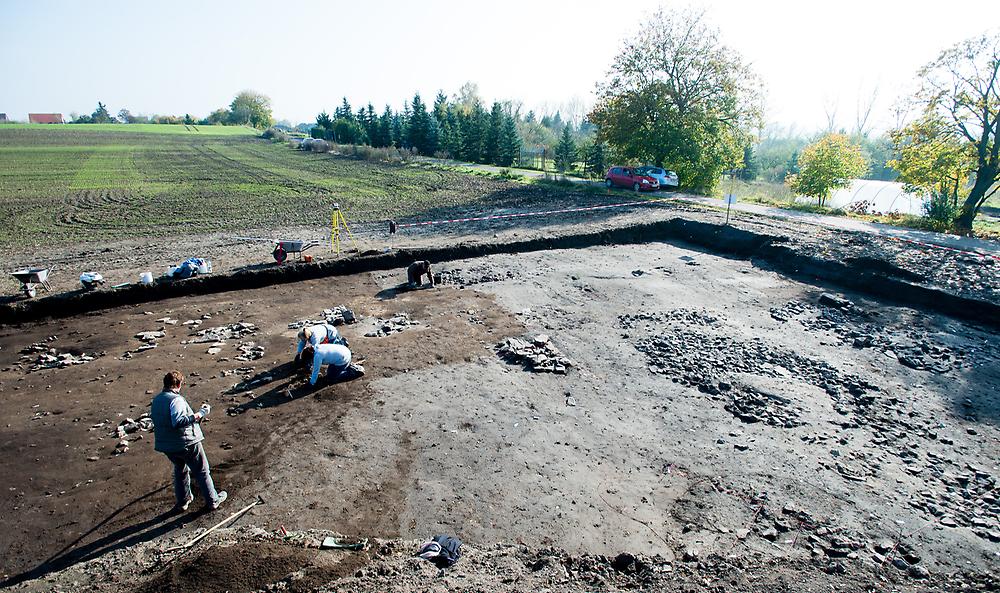Where to park your horse? What is on the daily menu? Archaeologists have found the remains of a long-haul truck-stop near Peissen in Sachsen–Anhalt on the road between Hannover and Dresden.

700 years ago the village of Krakau near Peissen was located right on a medieval highway. Here the archaeologists have found the remains of a truck-stop, where horses could be parked and fed, while drivers dipped into the daily fare on the menu.
The archaeologists have so-far uncovered a paved “parking-lot” and the outline of several stalls. Judging from the ground-plans these seem to have been lightly built, tells Susanne Friedrich, archaeologist from the LMU (Ludwig-Maximilians Universität München). “Presumably the villagers have come up with the idea of serving snacks and light meals to the passers-by; this may have generated a significant extra income”, she adds.
The truck-stop was located next to a medieval road, which has also been uncovered. Here the archaeologists have found tracks of a cart. The village was built in the 9th century in a region peopled by Slavs. The settlement existed for 400 years and was home to about 200 individuals. However in the 14th century the village was abandoned – probably due to a mixture of war, famine and pestilence.

The archaeologists have also found 15 houses with brick stone-cellars, a stone-walled well and a kiln. In addition more than 2000 stray finds have been catalogued, amongst which are Slavic ceramics, earrings out of bronzebone buttons, a spur and a silver penny. The name of the settlement “Krakau” may be found in written sources and is still used as the name of a field.
The excavation is part of a so-called rescue-dig prompted by a 37 km long gas pipeline between Peissen and Bobbau. The excavations are currently being wrapped up. It has been carried out in the regi of the Landesmuseum für Vorgeschichte in Halle.
SOURCE:
Die Mittelalterliche Wüstung Krakau bei Peissen
Imbiss für Langstrecken-Kutscher vor 700 Jahren
